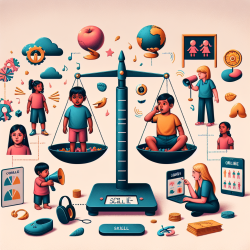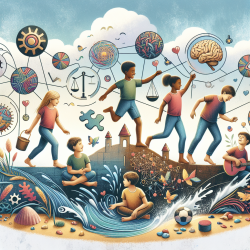Introduction
In the world of child development, the Bayley Scales of Infant Development is a renowned tool used globally to assess the cognitive and motor skills of children. However, the applicability of these scales across different cultural contexts has been a subject of ongoing research. A recent study titled "Comparison of performance of Sri Lankan and US children on cognitive and motor scales of the Bayley scales of infant development" provides valuable insights into this area.
Key Findings from the Study
The study compared the performance of Sri Lankan children aged 6, 12, and 24 months with their US counterparts using the Bayley III scales. The findings revealed some intriguing differences:
- At 12 months, Sri Lankan children scored higher in cognitive skills but lower in gross motor skills compared to US children.
- By 24 months, the cognitive scores of Sri Lankan children were lower than those of US children, with no significant differences in motor skills.
- The study highlighted the influence of cultural practices, such as child-rearing methods, on these developmental differences.
Implications for Practitioners
For practitioners working in diverse cultural settings, these findings underscore the importance of considering cultural context when interpreting assessment results. Here are some practical steps to enhance your practice:
- Understand Cultural Influences: Be aware of how cultural practices can influence developmental milestones. This understanding can guide more accurate assessments and interventions.
- Advocate for Local Validation: Encourage the validation of assessment tools like the Bayley Scales in different cultural contexts to ensure their accuracy and reliability.
- Continuous Education: Stay informed about the latest research and developments in child assessment tools to enhance your practice.
Encouraging Further Research
The study also highlights the need for further research to validate the Bayley Scales for different populations. Practitioners can contribute to this effort by:
- Participating in or initiating research studies to gather data on diverse populations.
- Collaborating with researchers to explore the impact of cultural factors on child development.
- Sharing findings and experiences with the broader professional community to foster a deeper understanding of cross-cultural developmental assessment.
Conclusion
Understanding the nuances of child development across different cultural contexts is crucial for practitioners aiming to provide effective interventions. By leveraging the insights from studies like this one, we can improve the accuracy of our assessments and the outcomes for the children we serve.
To read the original research paper, please follow this link: Comparison of performance of Sri Lankan and US children on cognitive and motor scales of the Bayley scales of infant development.










